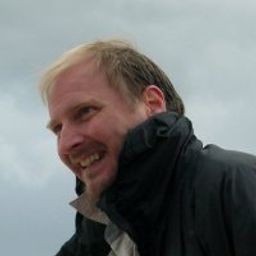Co-Production in Heritage: Towards New Imaginaries. Part I: Co-Production in the Digital Environment
My Session Status
This session invites new perspectives and new approaches to co-production that go beyond these strictly critical modes. The session aims to push the debate beyond the current focus of co-production debates which view co-production as something that takes place at various levels; the recognition of co-production as inevitably messy; and as meaning very different things to policy-makers, practitioners and almost nothing to the "public." We encourage papers to get up close to the recognized issues of power, hegemony and domination, but also beyond, in a "post-critical" vein. This might include new languages, metaphors and imaginaries to address the roles, relations and stakes involved in the co-production of heritage, as well as approaches taken from a variety of disciplinary traditions. We therefore invite contributions drawing from diverse theoretical perspectives such as actor-network theory (Latour 2005; Bennett 2007), assemblage (Deleuze and Guatarri 1987; Macdonald 2009) and non-representational theory and affect (Thrift 2010; Waterton 2014).
We invite theoretical and/or empirical contributions that explore the processes and practice of co-production along different terms, to generate a richer understanding of the politics of co-production and its progressive possibilities for change. We particularly invite contributions focusing on professionals’ experiences of co-production and their shifting understanding of expertise, knowledge practices and professional identities. With these issues in mind, we invite papers along (but not limited to) the following themes:
● how alternative framings of co-production change understandings of heritage;
● the merging of local knowledge/professional expertise;
● how knowledge and knowledge practices are constructed in empirical examples of co-production;
● how professional values/subjectivities are being challenged or altered in response to the imperative to co-produce;
● how emotion and feelings of belonging encourage co-production and/or co-management to flourish.
Sub Sessions
This paper is based on the 2015-2016 AHRC-funded Artcasting project, which explored how galleries can inventively evaluate young people’s engagement with art. The project researchers took a mobilities perspective, building a digital platform called “artcasting” to investigate this question in the context of “ARTIST ROOMS On Tour” in the UK. The artcasting platform invited visitors to digitally move artworks into other places and times, and to re-encounter and respond to artworks from beyon...
Digital technology has long been heralded as an important tool in the democratization of heritage. Digitization has enabled cultural institutions to provide greater access to their collections, while social media has not only enabled individuals and communities to “engage” with this material, but also allowed others to document, represent, and interpret their heritage online, and on their own terms. However, the relationship between digital and democracy is by no means straightforward. Thi...
The ACCORD project explores the opportunities and implications of digital visualization technologies for community engagement and research through the co-creation of three-dimensional models of heritage sites and objects. Techniques such as laser scanning, 3D modelling and 3D printing have largely remained in the domain of specialists. Consequently expert forms of knowledge and/or professional priorities often frame their use. Expressions of community-based social value are rarely addresse...




Discussion